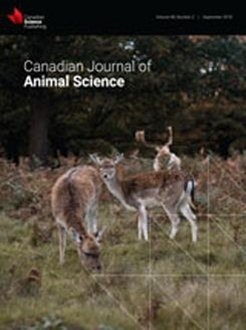The objective of this study was to evaluate the effect of including different levels of ethanolic extract of mango seed (EEMS) in broiler chicken rations on their phenolic compound levels, antioxidant activity, and meat quality. Initially, 756 one-day-old male chicks of the Ross 308 line were distributed in a completely randomized experimental design with seven treatments and six replicates of 18 birds. The treatments consisted of (i) a ration without the addition of antioxidants, (ii) a ration with the addition of 200 ppm of the antioxidant butylated hydroxytoluene (BHT), and (iii) a ration with the addition of 200, 400, 600, 800, or 1000 ppm of EEMS. According to the results, the values of phenolic compounds, the lipid stability of meat (measured by the value of thiobarbituric acid reactive substances), shear force, loss of cooking water, color, and pH of the meat differed significantly between the treatments. For the antioxidant activity of the meat, there was no significant difference between the treatments by the 2,2-diphenyl-1-picrylhydrazyl method; however, by the 2,2′-azino-bis(3-ethylbenzthiazoline-6-sulfonic acid) (ABTS) method, the breast meat of broilers fed diets containing EEMS from 600 ppm and up presented higher antioxidant capacity when compared with the meat of the birds fed the control diet. In the ABTS method, there was no significant difference between the use of synthetic antioxidant BHT and the addition of EEMS at different levels. In conclusion, the addition of EEMS does not affect meat quality parameters of broilers, but when a dose of 600 ppm or more is added, the antioxidant capacity of meat measured by the ABTS method increases.
How to translate text using browser tools
5 December 2019
Ethanolic extract of mango seed used in the feeding of broilers: effects on phenolic compounds, antioxidant activity, and meat quality
Nadja Naiara Pereira Farias,
Ednardo Rodrigues Freitas,
Herbenson Marques Gomes,
Davyd Herik Souza,
Edibergue Oliveira dos Santos,
Germana Costa Aguiar,
Danilo Rodrigues Fernandes,
Lina Raquel Santos Araújo,
Pedro Henrique Watanabe
ACCESS THE FULL ARTICLE
It is not available for individual sale.
This article is only available to subscribers.
It is not available for individual sale.
It is not available for individual sale.
free radicals
malonaldehyde
mangiferin
plant extracts





